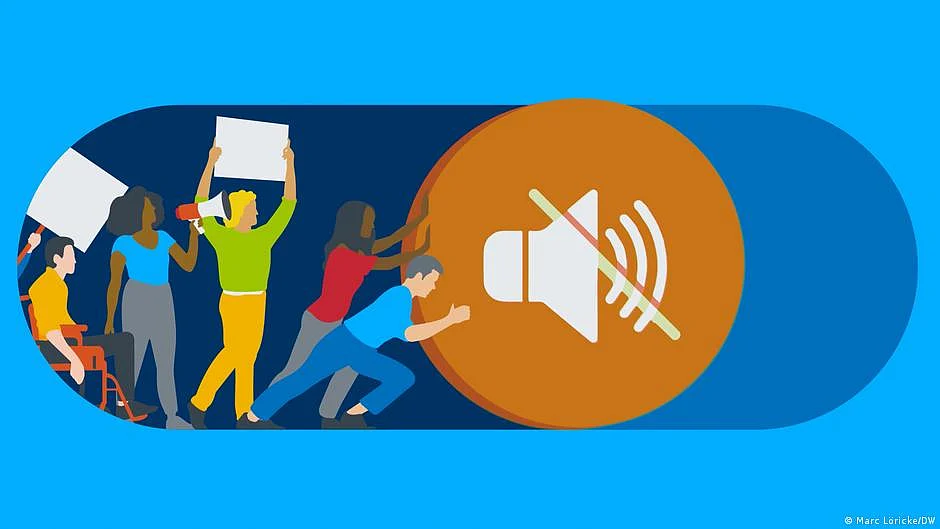India’s press freedom ranking falls to 150 from 142 last year
India’s press freedom ranking has fallen to 150 from 133 out of 180 countries in 2016, according to Reporters Without Borders, which published its 2022 World Press Freedom Index on May 3

India’s press freedom ranking has fallen to 150 from 133 out of 180 countries in 2016, according to Reporters Without Borders (RSF), which published its 2022 World Press Freedom Index on May 3.
In 202, India's rank was 142. India was listed under countries considered “bad” for journalism and was listed among the most dangerous places in the world for journalists.
RSF stated that the Indian authorities should respect the right to freedom of expression and release any journalists detained on trumped-up or politically motivated charges for their critical reporting and stop targeting journalists and muzzling independent media.
The 2022 edition of the Index, which assesses the state of journalism in 180 countries and territories, highlights the disastrous effects of news and information chaos, the effects of a globalised and unregulated online information space that encourages fake news and propaganda, the RSF said.
With an average of three or four journalists killed in connection with their work every year, India is one of the world’s most dangerous countries for the media. Journalists are exposed to all kinds of physical violence including police violence, ambushes by political activists, and deadly reprisals by criminal groups or corrupt local officials.
"Amid growing restrictions on media freedom, Indian authorities have arrested journalists on spurious terrorism and sedition charges, and have routinely targeted critics and independent news organizations, including raiding their workplaces. Journalists and online critics also risk prosecution under the Information Technology Act and IT Rules of 2021 for content critical of the authorities," noted RSF.
Indian authorities have been implicated in using the Israeli-produced spyware Pegasus to target journalists. In addition, the authorities’ frequent internet shutdowns hamper the ability of journalists to do their work, including accessing and disseminating information online.
The 2022 report said, "These restrictions on media freedom come amid an escalating crackdown on civil society by the Bharatiya Janata Party (BJP)-led government, which is using sedition, counterterrorism, and national security laws to target and prosecute human rights activists, students, government critics, and peaceful protesters. Journalists from minority groups and those in Jammu and Kashmir are particularly at risk."
Authorities in BJP-led Uttar Pradesh state have repeatedly filed false charges against journalists for publishing content and social media posts critical of the government.
The report observed that, "The Indian press is a colossus with feet of clay. Despite often huge stock market valuations, media outlets largely depend on advertising contracts with local and regional governments. In the absence of an airtight border between business and editorial policy, media executives often see the latter as just a variable to be adjusted according to business needs."
Recent years have also seen the rise of “Godi media” (a play on Modi's name and lapdogs) – media outlets such as Times Now and Republic TV that mix populism and pro-BJP propaganda. The old Indian model of a pluralist press is therefore being seriously challenged by a combination of harassment and influence, added the report.
Originally a product of the anti-colonial movement, the Indian press used to be seen as fairly progressive but things changed radically in the mid-2010s, when Narendra Modi became prime minister and engineered a spectacular rapprochement between his party, the BJP, and the big families dominating the media.
"The prime example is undoubtedly the Reliance Industries group led by Mukesh Ambani, now a personal friend of Modi’s, who owns more than 70 media outlets that are followed by at least 800 million Indians. Very early on, Modi took a critical stance vis-à-vis journalists, seeing them as “intermediaries” polluting the direct relationship between himself and his supporters. Indian journalists who are too critical of the government are subjected to all-out harassment and attack campaigns by Modi devotees known as bhakts," said RSF.
Confrontation between "blocs" is growing, according to the 2022 edition of the World Press Freedom Index compiled by the Paris-based Reporters Without Borders (RSF).
Within democratic societies, divisions are growing as a result of the spread of opinion media following the "Fox News model" and the spread of disinformation circuits that are amplified by the way social media functions.
At the international level, democracies are being weakened by the asymmetry between open societies and despotic regimes that control their media and online platforms while waging propaganda wars against democracies. Polarisation on these two levels is fuelling increased tension.
The invasion of Ukraine (106th) by Russia (155th) that began on February 24 reflects this process, as the physical conflict was preceded by a propaganda war. China (175th), one of the world's most repressive autocratic regimes, uses its legislative arsenal to confine its population and cut it off from the rest of the world, especially the population of Hong Kong (148th), which has plummeted in the Index.
Media polarisation is feeding and reinforcing internal social divisions in democratic societies such as the US (42nd), despite President Joe Biden's election.
Norway, Denmark and Sweden, continue to serve as a democratic model where freedom of expression flourishes, while Moldova (40th) and Bulgaria (91st) stand out this year thanks to a government change and the hope it has brought for improvement in the situation for journalists even if oligarchs still own or control the media.
The world's 10 worst countries for press freedom include Myanmar (176th), where the February 2021 coup set press freedom back by 10 years, as well as Turkmenistan (177th), Iran (178th), Eritrea (179th) and North Korea (180th).
Follow us on: Facebook, Twitter, Google News, Instagram
Join our official telegram channel (@nationalherald) and stay updated with the latest headlines